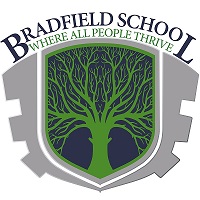Curriculum
Bradfield’s broad curriculum offer is based on a rich heritage of both academic and vocational study.
The school has a long-standing reputation for its art and design, music, drama and technology subjects alongside the traditional core subjects of English, Mathematics and the Sciences. Likewise, our Modern Foreign Languages and the Humanities provide the depth of experience for all students in Key Stage 3 and for many throughout their time at Bradfield School.
Our aim is to build upon some of the highest starting points of any secondary school in the city and ensure that every child at Bradfield experiences high challenge delivered through fun and engaging lessons in order to maximise their successes. Our sequencing of topics and core values facilitate a smooth transition into Y7 and help to prepare our students for further study and employment in the future. We want all of our students to leave us ready to play a positive role in society and continue to uphold the reputation of the Bradfield alumni.
Further details can be found in the subject links to the right. We hope parents and carers find curriculum details useful. We aim to add in links to the knowledge organisers used in some areas of school to give families even greater understanding of some of the core knowledge. You can see the first examples of this in the English KS3 curriculum content.
Curriculum Structure
All students will have 25 lessons per week.
The school day:
Key Stage 3 (Y7-Y9) age 11-14
Year groups are split into two bands in KS3. Students are taught as a form group in Year 7 and then in different mixed ability groups in Y8 and Y9 for the majority of subjects except for Design Technology (smaller group sizes), PE (gender groups) and Mathematics & Science (ability setting).
Modern Foreign Languages: Students commence studying French in Year 7 and continue with that language through to the end of Y9. They can opt to study this at GCSE.
Mathematics: set by ability in all three Year groups.
Science: set by ability from Y8 onwards.
Design Technology: Year 7, 8 and 9 are taught a range of DT subjects including Food on a rotation (throughout all the three years) to enable them to experience each subject discipline.
Key stage 4 (Y10-11) age 14-16
All students study the core subjects of English (literature and language), mathematics, RE and science at GCSE. All students are given the opportunity to study individual sciences. All students have core personal development and PE lessons each week.
Students choose three optional subjects, one from geography, history or a modern foreign language, plus two others.
Further information and resources to support home learning for all subjects can be found through the link to SharePoint below. Your child will need to log in using their usual school username and password.

